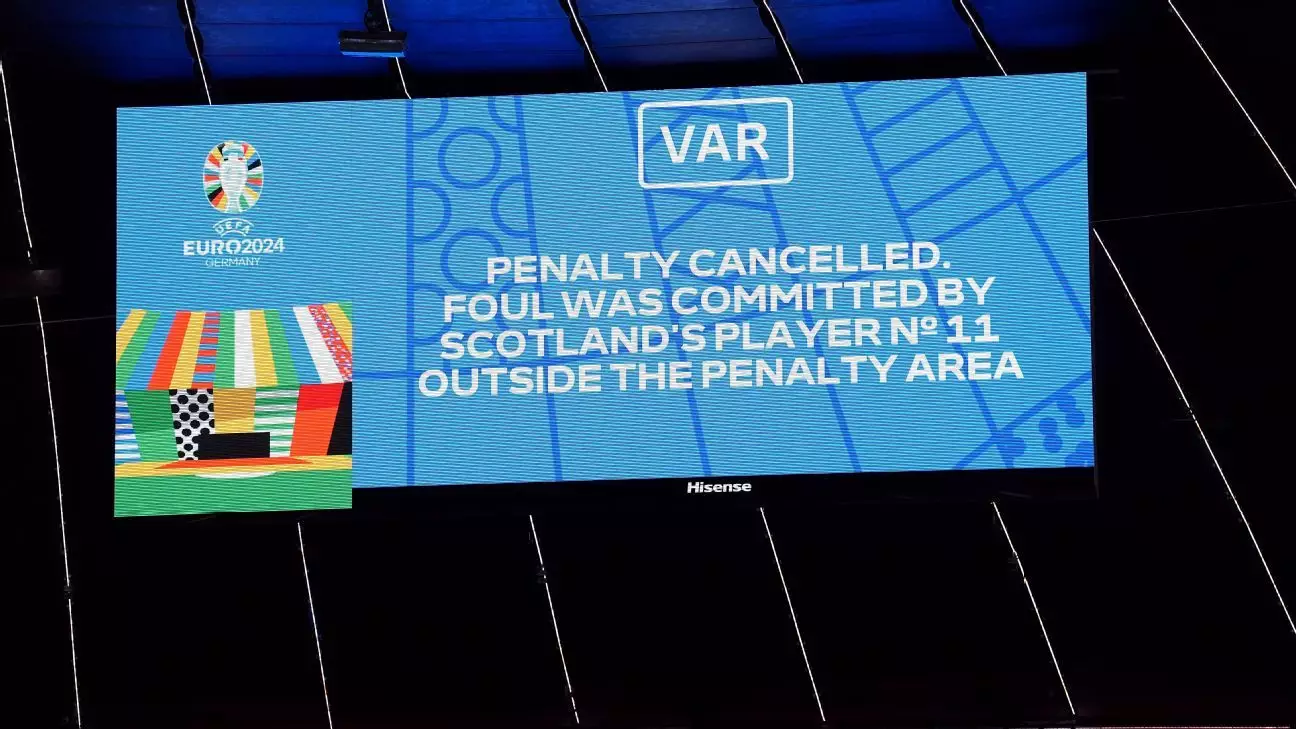Football, often referred to as the beautiful game, has undergone numerous changes since its inception, particularly in terms of officiating standards. Recent developments from the International Football Association Board (IFAB) indicate a significant shift in how refereeing can potentially evolve. The approval of trials for Football Video Support (FVS), an alternative system to Video Assistant Referee (VAR), has sparked interest and debate among stakeholders within the sport.
FVS is distinct from VAR in its approach to decision-making during matches. This system was conceived following the need for a more accessible and cost-effective solution, particularly for leagues with limited resources. While VAR has established itself in high-profile leagues such as the English Premier League, its implementation has come with challenges and criticisms, leading officials to explore alternatives that could better serve less wealthy competitions. FVS allows coaches to challenge a referee’s decision directly, effectively placing some authority back into the hands of those on the sidelines.
The introduction of a challenge system permits coaches to question decisions they believe are erroneous—up to two challenges per match. Such a design intends to foster a more interactive dynamic between coaches and referees, stimulating discussions not only during the match but also afterward in tactical analysis and media coverage.
Initial trials of FVS were conducted during the U20 and U17 FIFA Women’s World Cups, allowing governing bodies an opportunity to gather data and assess the system’s efficacy in real-game scenarios. The feedback from these trials is vital, as it determines how the system might be refined and where it could be deployed in the future. According to Pierluigi Collina, chairman of FIFA’s referees’ committee, the IFAB’s careful analysis of these trials is crucial for making informed decisions about broader implementations. His cautious optimism suggests a desire for FVS to succeed while understanding its limitations, particularly regarding camera setups.
As noted, FVS is designed for matches with minimal technological infrastructure—optimally functioning with just four to five cameras. In environments created for high-stakes professional games, such as the Premier League, this poses distinct challenges; however, leagues with smaller budgets may find the flexibility and interactive nature of FVS more beneficial than the formalities of VAR.
It bears emphasizing that FVS is not a mere replication of VAR technology; its limitations are inherent. FVS lacks the sophisticated camera systems that allow VAR to assess minute details and complex situations like offsides. In cases where angle perspectives are limited, only clear and obvious infractions can be accurately identified. This reality reinforces the referee’s role on the pitch—emphasizing their significance in adjudicating decisions while providing coaches with an avenue to contest legitimate grievances.
Furthermore, the procedural differences between FVS and VAR could imply a more streamlined decision-making process. With FVS, when a coach challenges a decision, the referee consults replay clips rather than relying on a team of video match officials to guide them through the footage. This shift could lead to quicker resolutions and fewer interruptions during the flow of the game, ultimately appealing to players, coaches, and fans alike.
In addition to FVS, the IFAB is exploring various trials aimed at refining the football experience—whether by alleviating situations of delayed goals or assigning communication protocols. For instance, the limitation that only team captains may address referees could promote a more organized and respectful interaction on the field. Furthermore, the potential integration of technologies such as referee body cameras and semi-automated offside systems indicates an ongoing commitment to enhancing officiating standards.
The outcomes of these trials will be crucial, particularly as the IFAB prepares to discuss forthcoming amendments that could permanently affect the Laws of the Game in the next Annual General Meeting scheduled for March 1. One could speculate that if FVS proves successful, it may complement or even replace VAR in certain contexts, fundamentally altering the officiating landscape in football.
The journey toward refining how football is officiated continues to evolve dramatically. The introduction of Football Video Support presents an innovative, responsive alternative to traditional methods that has the potential to enhance the quality and integrity of the game. As the sport’s governing bodies conduct further analyses and engage in exploratory trials, the impact of technology on the beautiful game will undoubtedly resonate well into the future.


Leave a Reply